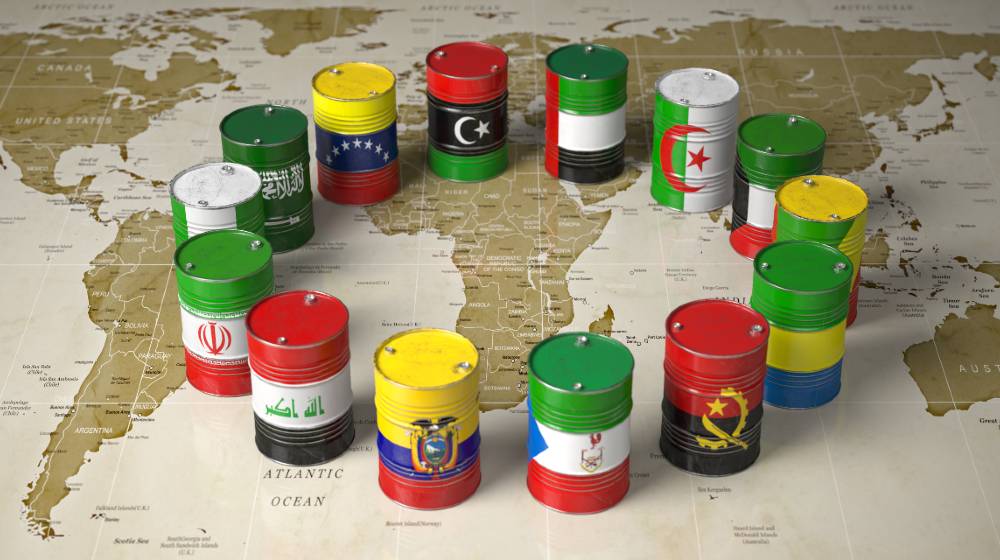News
Oil Prices Hit $75/Barrel As OPEC Members Remain Divided

Oil prices jumped to their highest level in three years Monday as talks between OPEC and other oil-producing countries collapsed. The group failed to reach a consensus on their production schedules and policy for August onwards.
RELATED: Judge OKs Resumption Of Oil And Gas Leasing
Oil Prices Jump To Three Year High
US Oil benchmark West Texas crude futures rose by $1.17 or 1.56% to $76.33 per barrel. This is the highest price recorded since October 2018. Meanwhile, Brent crude, the international benchmark, rose 1.2% or 93 cents to $77.10 per barrel.
Oil prices rose due to uncertainty over OPEC’s plans for next month and beyond. Last week, the organization opened talks between its members and its allies known as OPEC+ in the hopes of finalizing its output policy for the rest of 2021.
In 2020 during the height of the pandemic, the Saudi-Russia group cut its collective output by some 9.7 million barrels a day. This helped support proxies as demand for petroleum virtually vanished overnight.
Fast-forward to 2021, and member states are slowly restoring their old production output quotas. Last Friday, the majority of the OPEC delegates voted to gradually remove the remainder of the cuts (around 5.8 million barrels) made during 2020. This will amount to increasing production by 400,000 barrels a day beginning August until late 2022.
UAE Rejects Proposals
However, the United Arab Emirates rejected the proposals to increase production. Organizers tried to continue with the talks in the hopes of reaching a consensus, but by Monday, all bets were off. In a statement, OPEC Secretary-General Mohammad Barkindo said that “The date of the next meeting will be decided in due course.”
Meanwhile, the UAE remains firm in its decision to say no. The country said it wants a boost to its own production quota inside the broader OPEC+ framework. “For us, it wasn’t a good deal,” UAE Minister of Energy and Infrastructure Suhail Al Mazrouei said Sunday.
He added the UAE supports a short-term increase in supply. However, it wants better terms if the policy will extend until 2022. Last November, the country said that it will infuse $122 billion to boost the country’s production by about one million barrels a day by 2030.
Saudi Arabia And UAE Not Seeing Eye-To-Eye
According to many analysts, the problem with Saudi and the UAE extends more than just production quotas. The rift between the two Middle East powers began showing cracks in 2019.
This is when the UAE announced its withdrawal from a Saudi-led coalition fighting in Yemen. Then, the UAE agreed to a peace deal with Israel, which irked Saudi Arabia, the long-time power broker in the area.
Meanwhile, Saudi Arabia’s reconciliation with Qatar didn’t go well with the United Arab Emirates. For years, Saudis and the Emiratis jointly held a blockade against Qatar. According to a senior Saudi official, “The OPEC clash is not something that just erupted overnight.
The UAE and the kingdom just don’t see eye-to-eye in the Middle East.” In addition, the Saudis also announced that it will limit government contracts to companies that have regional offices inside their kingdom. Many see the decision as an attempt to get some business from Dubai, the Gulf’s de facto business hub. “It was only a matter of time before the relationship deteriorates and spills over at the OPEC meetings,” a senior Arab diplomat noted.
Brace For Higher Oil Prices
Already, analysts are bracing for higher oil prices as a result of the disagreement among OPEC members. “With no increase in production, the forthcoming growth in demand should see global energy markets tighten up at an even faster pace than anticipated,” TD Securities analysts wrote in a note to clients.
“This impasse will lead to a temporary and significantly larger-than-anticipated deficit, which should fuel even higher prices for the time being. The summer breakout in oil prices is set to gather steam at a fast clip,” the firm added.
Watch the CNBC News reporting why OPEC+ extended supply talks:
What do you think of OPEC and their apparent disagreement among members? Do you think this issue will resolve itself sooner? Or, do you think that it signals the end of cooperation among the oil-producing states?
Let us know what you think. Share your thoughts on OPEC and oil prices below.















